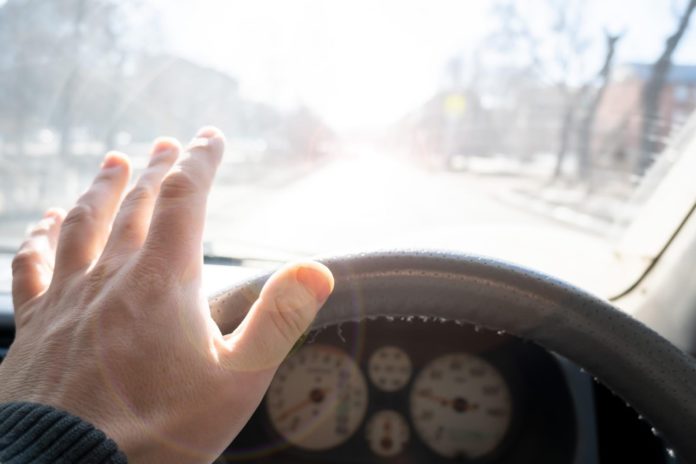Is dangerous driving a criminal offence in Australia?
Generally, when you drive negligently or recklessly, you can be charged with dangerous driving. And in most cases, you can be penalised with fines, imprisonment or both plus a suspended license.
What constitutes dangerous driving?
Driving is considered “dangerous” under the pretext that the conduct of the person driving the vehicle whilst undoubtedly foolish did so resulting in an accident or danger to other people and/or property.
Under Section 61 of the Road Traffic Act 1974, a person driving in reckless manners like over-speeding and other circumstances that endanger the public or any person can be considered “dangerous driving.”
Is dangerous driving the same as careless driving?
No, dangerous and careless driving are considered different. The deterrent factor in careless driving is that the driver did not willfully and unlawfully acted recklessly and foolishly. Dangerous driving, on the other hand, consists of driving to cause harm voluntarily or consciously.
Let’s say, a driver unknowingly hit a bump on the road which caused him or her to swerve and hit a cyclist. In this case, it cannot be considered dangerous driving, instead, it is driving without due care and attention.
What are the factors that the court considers in determining whether or not a person committed dangerous driving?
Some factors that may be considered in court include the following:
- The Time of the Day
For instance, the alleged dangerous driving was committed at night time. The darkness of the night may render it difficult for the person driving to see clearly any unforeseen or unexpected objects that may affect his or her manner of driving.
- The Road Condition
There are instances when the driver is not fully aware of the condition of the road at the time of the alleged offence. Let’s say road bumps or construction debris that can affect driving.
- The prevailing weather condition
A rainy day can cause slippery roads that can be a hazard for drivers. In which case, if a person driving a car causes damage to property because a slippery road made him swerve, this factor may also be considered in court.
- The vehicle’s condition
If the person driving is unaware that his or her brakes are not working perfectly and while driving causes an accident, the court may consider this factor in determining whether or not the person is guilty of dangerous driving.
- Other aggravating circumstances
If a person charged with dangerous driving is found to have been intoxicated or have been previously penalised because of a serious driving offence, these aggravating circumstances may also be factored in. In this case, a higher penalty may be admonished.
What are the penalties for dangerous driving?
Dangerous driving is under the assumption that because of the willfully foolish manner of driving, a person causes grievous bodily harm or even death to another person.
Under Section 328-A of the Queensland Criminal Code Act 1899, the following penalties will apply:
- Maximum 200 penalty units or 3 years imprisonment for any person who dangerously drives a vehicle in any place;
- Maximum 400 penalty units or 5 years imprisonment for any person who dangerously drives a vehicle under the influence of an intoxicating substance, excessively speeding or taking part in a speeding race, or has been previously convicted of a similar or more serious traffic or driving offence;
- 10 years imprisonment for any person who dangerously drives a vehicle which resulted in the death or serious bodily injury to another person;
- 14 years imprisonment if the person who dangerously drives a vehicle resulting in the death or grievous bodily harm to another person was driving under the influence of an intoxicating substance, excessively speeding or has been previously convicted of a similar or more serious traffic or driving offence; and
- 14 years imprisonment if the person who dangerously drives a vehicle resulting in the death or serious bodily injury to another person, and after knowing the same, leaves the injured person behind.
If the offender, however, leaves the injured person for the purpose of getting help, his or her penalty may be reduced accordingly. In any case, a person caught by authorities committing dangerous driving can be arrested even without a warrant.
Is it possible to get out of a dangerous driving charge?
Yes, there are available defences for persons who did not deliberately drive dangerously.
When you are sure to be driving with due care and attention. Despite driving with due diligence, accidents can happen. It rests upon you to prove that you practised due care at the time of the offence.
Being threatened to drive dangerously can also be used as a defence. The legal team handling your case needs to prove in court that someone is coercing you to drive without your consent and under duress.
If the person driving is mentally impaired. In which case, you have the burden to prove that at the time of the offence, you were unable to control the nature of your actions.
Let’s say that you suddenly had a seizure causing you to lose control over the steering wheel and as a result, caused injuries to others and/or damages to property. In this case, mental impairment can be invoked as a defence.
Another defence you can use is emergency driving. Let’s say, your wife is about to give birth and you can’t get a hold of an ambulance. So, what you did was to drive her to the hospital yourself and because of her dire condition, you drove past the speed limit.
While it is dangerous to drive with excessive speeding, the situation warrants that you get your wife to the hospital as fast as you could. This can then be used as a defence against dangerous driving.
Lastly, if the lives of people are at stake, speed driving in the sense of duty like that of doctors, firefighters and police officers can also be a possible defence.
To ensure that you get a fair judgement, hire the services of professional criminal defence lawyers in QLD.
Contact Smith Criminal Law today!











